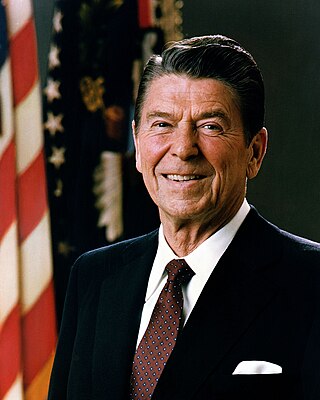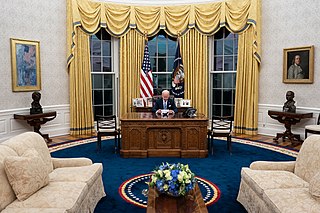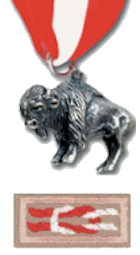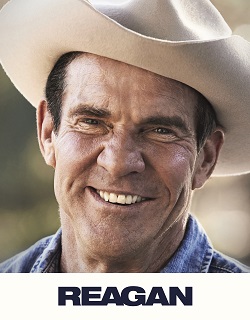Production
Development

In January 2005, the Discovery Channel and AOL announced The Greatest American, a seven-hour-long miniseries, to celebrate the 20th anniversary of the Discovery Channel. [3] On January 21, Discovery and AOL began conducting a vote to determine the greatest American based on, according to an Associated Press report, who "most influenced the way they think, work and live". [4] Later in February, it was revealed that Matt Lauer would host the show. [3] He took the role partly because of the debate the series could generate, similar to that surrounding the high ranking of Diana, Princess of Wales, in the BBC's 100 Greatest Britons . [5] Voting continued until spring. [6]
Jason Raff and Elyse Zaccaro served as executive producers of The Greatest American. [7] Ann Coulter makes an appearance. [8] Tom Westman also makes an appearance to voice his support for Benjamin Franklin, [9] whom Ralph Archbold portrays in the series. [10]
Voting
Nominees
The 100 nominees for the title of "greatest American" were unveiled on April 18, [6] when over 500,000 votes had already been cast. [11] Discovery's alphabetized list included: [12]
- Muhammad Ali
- Maya Angelou
- Susan B. Anthony
- Lance Armstrong
- Neil Armstrong
- Lucille Ball
- Alexander Graham Bell [lower-alpha 1]
- Barbara Bush
- George H. W. Bush
- George W. Bush
- Laura Bush
- Andrew Carnegie
- Johnny Carson
- Jimmy Carter
- George Washington Carver
- Ray Charles
- César Chávez
- Bill Clinton
- Hillary Clinton
- Bill Cosby
- Tom Cruise
- Ellen DeGeneres
- Walt Disney
- Frederick Douglass
- Amelia Earhart
- Clint Eastwood
- Thomas Edison
- John Edwards
- Albert Einstein [lower-alpha 2]
- Dwight D. Eisenhower
- Brett Favre
- Henry Ford
- Benjamin Franklin
- Bill Gates
- Mel Gibson
- Rudy Giuliani
- John Glenn
- Billy Graham
- Alexander Hamilton
- Tom Hanks
- Hugh Hefner
- Katharine Hepburn
- Bob Hope [lower-alpha 3]
- Howard Hughes
- Michael Jackson
- Thomas Jefferson
- Steve Jobs
- Lyndon B. Johnson
- Michael Jordan
- Helen Keller
- Jacqueline Kennedy Onassis
- John F. Kennedy
- Robert F. Kennedy
- Martin Luther King Jr.
- Rush Limbaugh
- Abraham Lincoln
- Charles Lindbergh
- George Lucas
- Madonna
- Malcolm X
- Phil McGraw
- Marilyn Monroe
- Michael Moore
- Audie Murphy
- Richard Nixon
- Barack Obama
- Jesse Owens
- Rosa Parks
- George S. Patton
- Colin Powell
- Elvis Presley
- Ronald Reagan
- Christopher Reeve
- Condoleezza Rice
- Jackie Robinson
- Eleanor Roosevelt
- Franklin D. Roosevelt
- Theodore Roosevelt
- Babe Ruth
- Carl Sagan
- Jonas Salk
- Arnold Schwarzenegger [lower-alpha 4]
- Frank Sinatra
- Joseph Smith
- Steven Spielberg
- James Stewart
- Martha Stewart
- Nikola Tesla [lower-alpha 5]
- Pat Tillman
- Harry S. Truman
- Donald Trump
- Harriet Tubman
- Mark Twain
- Sam Walton
- George Washington
- John Wayne
- Oprah Winfrey
- Tiger Woods
- Wright brothers
- Chuck Yeager
Finalists
By June, the 25 finalists were unveiled. [18] In alphabetical order, the finalists include: [19]
- Muhammad Ali
- Neil Armstrong
- Lance Armstrong
- George W. Bush
- Bill Clinton
- Walt Disney
- Thomas Edison
- Albert Einstein [lower-alpha 2]
- Henry Ford
- Benjamin Franklin
- Bill Gates
- Billy Graham
- Bob Hope [lower-alpha 3]
- Thomas Jefferson
- John F. Kennedy
- Martin Luther King Jr.
- Abraham Lincoln
- Rosa Parks
- Elvis Presley
- Ronald Reagan
- Eleanor Roosevelt
- Franklin D. Roosevelt
- George Washington
- Oprah Winfrey
- Wright brothers
Results
The American public cast a total of over 2.4 million votes through telephone lines, text messages, and email correspondence. The names with the most votes were: [20] [21]
- Ronald Reagan
- Abraham Lincoln
- Martin Luther King Jr.
- George Washington
- Benjamin Franklin
- George W. Bush
- Bill Clinton
- Elvis Presley
- Oprah Winfrey
- Franklin D. Roosevelt
- Billy Graham
- Thomas Jefferson
- Walt Disney
- Albert Einstein [lower-alpha 2]
- Thomas Edison
- John F. Kennedy
- Bob Hope [lower-alpha 3]
- Bill Gates
- Eleanor Roosevelt
- Lance Armstrong
- Muhammad Ali
- Rosa Parks
- The Wright Brothers
- Henry Ford
- Neil Armstrong















